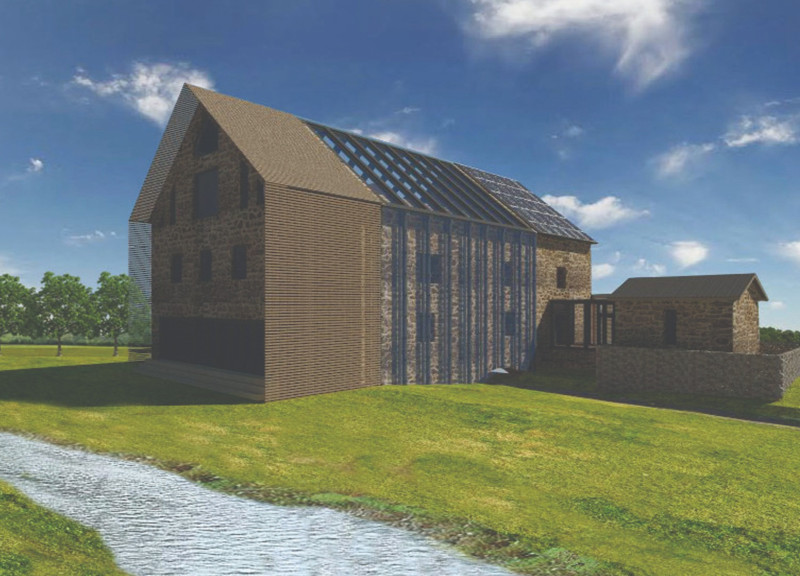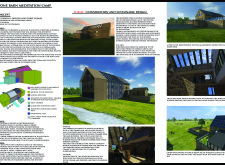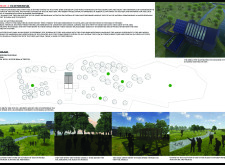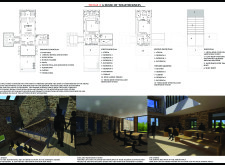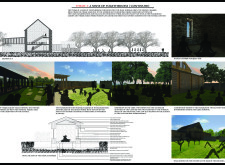5 key facts about this project
## Project Overview
The Stone Barn Meditation Camp, located in the countryside of Vidzeme, Latvia, is designed to embody principles of conservation, ecotourism, and community engagement. The intent is to establish a harmonious interaction among natural elements, sustainable practices, and user experiences, complemented by the preserved historic stone structure that serves as a focal point for the project.
## Conservation and Sustainable Design
The architectural approach prioritizes the preservation of the existing stone structure while integrating modern functional elements aligned with sustainability. Key design features include:
- **Natural Light Utilization**: Large strategically located windows and a glazed roof enhance the flow of natural light throughout the interior, minimizing the dependence on artificial illumination and fostering a welcoming atmosphere.
- **Sustainable Materials**: The project incorporates eco-friendly materials that complement the original stone walls. Notable elements include:
- **Photovoltaic Cells**: Installed on the roof to generate solar energy, contributing to the camp's self-sufficiency.
- **Green Roofs**: Designed to support biodiversity and facilitate climate regulation for activities below.
- **Preserved Stone**: The original stone is maintained and repurposed to ensure a cohesive aesthetic with the environment.
- **Passive Climate Control**: Features such as Trombe walls and effective ventilation systems provide natural heating and cooling solutions, reducing reliance on conventional systems.
## Ecotourism and User Engagement
Ecotourism is a central theme of the camp, promoting interaction between visitors and the natural landscape along with local culture. Key features include:
- **Interactive Nature Activities**: The camp offers programs that encourage visitors to explore and appreciate Latvia’s diverse ecosystems, fostering a commitment to ecological conservation.
- **Spatial Integration**: Thoughtfully designed walking trails and observation points enable guests to engage with local wildlife and participate in educational initiatives that emphasize ecosystem understanding.
- **Community Involvement**: The design aims to support local economic activities through responsible tourism practices, thereby enhancing community connections and benefits.
## Materials and Design Detail
The material selection reflects a focus on sustainability and synergy with the local context. Key materials include:
1. **Preserved Local Stone**: Maintained from the existing structure, providing durability and historical relevance.
2. **Photovoltaic Cells**: Supporting the project's energy needs through renewable resources.
3. **Green Roof Systems**: Enhancing environmental integration and biodiversity.
4. **Timber**: Utilized for interior finishes and structural components.
5. **Large Glazing Panels**: Maximizing natural light and contributing to the project's aesthetic.
Overall, the Stone Barn Meditation Camp demonstrates a commitment to blending historical preservation with contemporary sustainable practices, ensuring an environment conducive to both personal reflection and collective interaction within the natural landscape.


